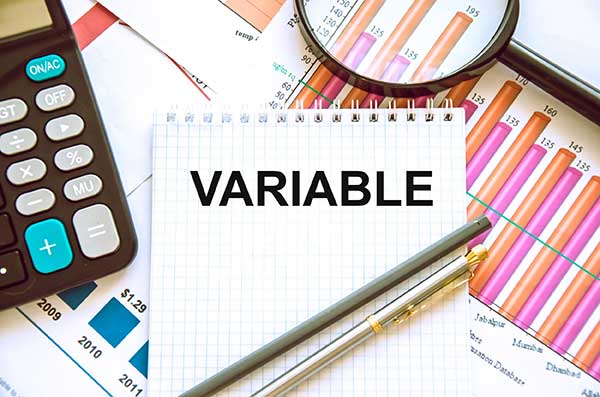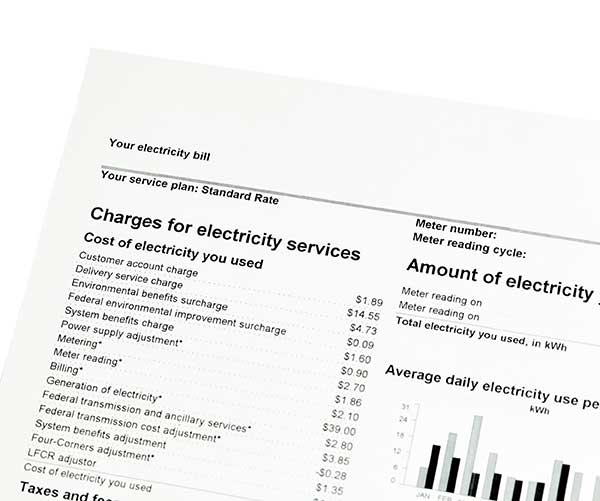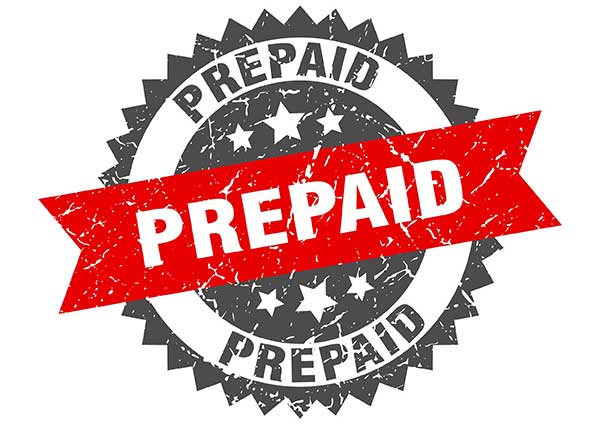Did you know that the only state in the nation with a fully deregulated electric grid is Texas? This gives the Lone Star State residents a unique advantage that many Americans don’t yet have: the power to choose.
In fact, nearly 70% of Texas residents purchase their electricity plans from competitive market providers instead of rural electric co-ops or municipal utilities. But are you part of that figure?
If you find shopping for energy plans to be confusing or think comparing electricity providers might be too complicated, we’ve got great news for you. Thanks to marketplaces like Energy Savings, along with the information packed into this guide, you can find your perfect electricity plan quickly and easily.
Join us as we discuss how to compare electricity plans and their pricing, the various types of plans available, and what that means for you as a consumer. We’ll also cover questions you’ll want to ask your electricity provider, which will ensure you get started on the right path.
How Do I Compare Electricity Plans?
If someone asked what your current electricity plan’s total rate per kilowatt-hour (kWh) is, would you know the answer? Most people don’t, but if you want to save money on your energy bill, it’s worth taking the simple step to find out. Learning this figure will help you compare energy plans based on pricing. You can find out what your electricity rate is with a simple phone call to your energy company.
Ask them to base the rate they give you on the average monthly electricity usage of 1,000 kWh. Don’t include taxes or non-recurring fees when comparing rates. This will provide you with the best grounds for comparing rates and energy plans across multiple electricity providers.
While you have your utility company on the line, ask these frequently asked questions (FAQs) to make the best comparisons.
Power to Choose Texas: A Guide for Texas Electricity Rates
1. What Does the Electricity Rate or Pricing Include?
Is your electricity bill’s rate all-inclusive? Meaning, in addition to the electricity itself, does your rate include any charges for transmission and distribution? The first step to understanding your rate is dissecting it to precisely determine what you’re paying for.
Are there any recurring fees or monthly customer charges wrapped into the rate? Break down how much each “extra” is so that you’re able to compare apples to apples.
2. Is There a Contract Required for Enrollment? If So, What Are the Terms?
Some electricity plans will require an enrollment contract. If this requirement turns out to be the case for you, it’s essential to understand the contract terms fully. Make sure to ask these questions:
- What is the required length of the contract?
- Is there an early termination fee or penalty if I break the contract?
- How much notice is required before switching to a new energy plan or electricity company?
- Does the contract automatically renew? If so, how much notice is required if I don’t want the contract renewal? If it doesn’t renew automatically, what happens when the contract expires?
3. What Type of Plan Does the Offer Include?
Generally speaking, there are four types of energy plans that you can choose from. They are fixed-rate plans, variable-rate plans, indexed-rate plans, and prepaid plans.
Knowing what type of plan you’re talking about will help you understand essential factors. You need to know if the monthly bill will be a regular fixed price or if it could fluctuate monthly. The type of plan could also determine if your energy rates will vary by the amount of energy usage or the time of day you use the most energy.
Let’s take a closer look at the details of the different types of plans.
What Are Fixed-Rate Plans?
Texas residents haven’t always had a reason to consider choosing a fixed-rate plan. After all, the state doesn’t get the extreme temperature changes you see in some other regions. Or does it?
Climate change may have brought some very unwelcome weather to the south. If you were one of the millions affected by the February 2021 winter storm (and even if you weren’t), you might want to listen up. Enrolling in a fixed-rate plan may be just what you need to protect yourself from an unexpected, nightmarishly high electricity bill.
Fixed-rate plans offer stable pricing over the length of a contracted period. This ensures your electricity bill is predictable regardless of weather changes and other price-altering factors. In other words, it’s excellent for anyone who likes to stick to a budget.
Now, it is possible for fixed-rate electricity plans to vary slightly due to things like tax rises and Electric Reliability Council of Texas (ERCOT) changes. Fortunately, it’s pretty rare for that to happen. For the most part, the cost per kilowatt-hour will remain consistent over the agreed-upon period.
With fixed-rate plans, it’s essential to know your electricity usage. They frequently require a minimum level. If you don’t hit that usage amount, your energy bill could end up at a higher electricity rate than advertised. Additionally, most of these plans have a cancellation fee.
What Are Variable-Rate Plans?
Unlike fixed-rate plans, when you subscribe to a variable-rate plan, your electricity rate can fluctuate monthly. The benefit here is that you can generally change electricity providers at any time without a penalty. The rate you see promoted for variable-rate plans is the price you can expect to pay for your first energy bill cycle. After that, the Retail Electricity Provider sets the rate so it might change, meaning your energy charge may change month to month.
The risk here is that the rate is entirely unknown. If you have a tight monthly budget or just like to keep your monthly payments consistent, this plan may not be for you. While it’s nice to have the freedom to change electricity plans and providers whenever you want, you have to decide if that freedom is worth the risk.
This type of plan opens up the potential of having to pay a surprisingly huge bill at any given point, like what happened to many Texas residents during that terrible winter storm last February. The pricing can undoubtedly vary quite drastically at times. If this is a concern for you, look into your fixed-rate plan options.
What Are Indexed-Rate Energy Plans?
Indexed-rate energy plans are similar to variable-rate plans because your energy rates can change each month. However, they differ in two ways. First, based on a publicly available index, the rate you receive is provided to you upon enrollment. For example, your energy rate could be calculated according to published pricing curves like ERCOT’s wholesale electricity price.
It can be comforting to know the formula used to determine your pricing, but there’s still the risk of an unexpected sky-high electric bill. The other difference is that you may lose the flexibility of being contract-free. Index-rate plans are either month to month or will have a contract term.
The Power to Choose | FAQ’s – Your Questions Answered
What Are Prepaid Plans?
Much like a prepaid cell phone plan, prepaid electricity plans allow you to pay your electric bill upfront without the commitment of a contract or even a deposit. If you don’t have a good idea of your monthly electricity usage, this energy plan may not be for you since you pay in advance for what you expect to use.
However, a prepaid plan could work well for consumers who have little to no credit. It can also be ideal for temporary residents and others looking for a very short-term electricity plan.
Enter your ZIP Code and compare electricity rates
4. What Are the Electric Bill Details?
Some electricity plans require an initial deposit or a sign-on fee to be paid upfront. Alternatively, some electricity providers offer gift cards or bill credits with plan enrollment which could offset your energy costs. If either of these factors relates to your plan, keep that in mind when calculating your average annual rate.
Here are some more questions that, when answered, will help you further understand your energy charges:
- What are my payment options? What if I miss a payment? Is there a late fee?
- Are there any additional hidden fees I need to know about?
- Who do I call in the case of an emergency or outage?
- Will I be billed by the electric company or the energy supplier?
- Will utilities be billed together or separately?
5. Do You Offer Any Green Energy Solutions?
Energy companies generate electricity in several different ways, which impacts the environment in various degrees. How does your energy company generate electricity? Some strictly use fossil fuels such as natural gas, coal, or oil. Others will use renewable energy resources like hydro energy or nuclear energy.
For example, Just Energy uses green energy products that are sustainable energy solutions for supporting a cleaner environment. When you add JustGreen™ products to your existing electricity plan, you’ll offset your carbon footprint and support the generation of energy from clean, renewable resources.
This opportunity to help the environment by supporting renewable energy projects isn’t available with all plans or all providers. Finding an electricity provider in your area that offers green energy solutions is an easy way to help the planet.
When asking about green energy solution options, make sure to ask these questions as well:
- What’s the percentage of fuel sourced by renewable energy?
- What carbon footprint reduction options do you offer?
- If I have solar panels or wind turbines that generate excess electricity, do you offer a buy-back plan? If so, what are the terms?
Which Texas Electricity Plan Is Best for You?
You now have enough background knowledge to make an informed decision on which electricity plan is best for you. As soon as you’ve decided on the type of plan you need, all that’s left to do is select the right electricity provider. Thanks to deregulation, there are plenty of competitive market provider options in most parts of Texas for you to choose from.
You can easily find your favorite utility company using the filters on Power to Choose, where you can also view provider ratings. Congratulations! You’re ready to choose your ideal electricity plan.
Brought to you by energysavings.com
All images licensed from Adobe Stock.
Featured image:







